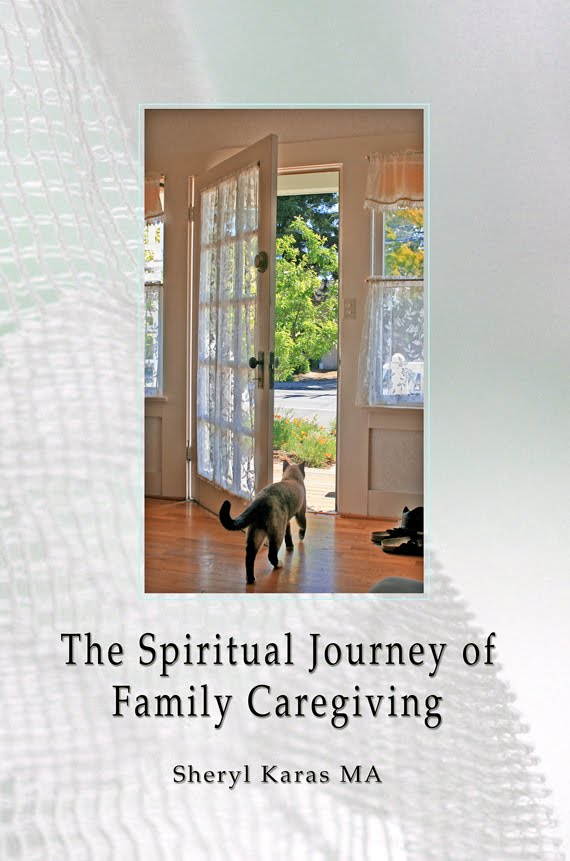
I saw a new movie called "Across the Universe" last night that features songs by the Beatles and is a good representation of life in the 60s, the time period when those songs were written. Quite the nostalgia trip. I wrote an article about being a child of the 60s and a caregiver today that is included in my book The Spiritual Journey of Family Caregiving. Here's a small excerpt:
It’s an interesting role we children of the 60’s now have—in our youth we fought to change the world by joining protest marches and refusing to conform. We envisioned new futures and built whole movements of change around those visions. We created communes and worker cooperatives and new businesses that challenged the status quo. We carried freedom of speech to new extremes, challenged social and political discrimination based on every sort of difference, and created a sexual revolution that has completely changed the mores of the world for better and worse. We believed in revolution and created one mostly by rejecting the habits (and the wisdom) of our parents’ generation. We made anyone over 30 the enemy but now we need to take care of this same generation. The only way we can do that is by putting the battle down and making peace as best we can.
Luckily, most of us do have appropriate experience we can draw upon. During the last 10-20 years, my generation has spent most of our time as parents and breadwinners ourselves and have, for the most part, learned to mellow our approach to social change. We learned the importance of creating emotional and physical stability for our children while assisting them to change and grow in a gentle organic manner. We strove to respect our children’s feelings and right to make decisions for themselves even as we attempted to steer them in positive directions and help them make healthy choices. And there have been times when we have had to set the very same limits our parents set for us and say no to behavior that was counterproductive for all concerned. Chaotic revolution and anarchy is not the best way to raise a family!
And it’s not the most loving way to treat adults. If we continue to fight the 60s fight about change with our parents we will have a very rough road as caregivers. But if we apply the same principles to caregiving that we learned as parents, we’ll be much more successful. We need to help our parents maintain emotional and physical stability while introducing change gradually. We need to respect their feelings and their right to make decisions for themselves. We can suggest what we think are more healthful solutions but we need to accept their right as adults to make choices we don’t agree with unless that behavior falls into the legal definition of self-neglect or hurts someone else.
None of this has anything to do with accepting any status quo that keeps us trapped in an unhealthy dynamic for years at a time. Insisting that their behavior not hurt anyone else includes us! But changing these dynamics does require patience and the willingness to face the feelings we—and they—have been avoiding. Acknowledge the grief and fear that change entails outloud. Agree that their feelings are justified and promise to support them through it. When the time comes that the pain of doing nothing is worth the risk of trying something new, if your emotional support has been genuine and consistent, you may get an opening that will let you all get what you need.
Buy The Spiritual Journey of Family Caregiving by clicking here now!





